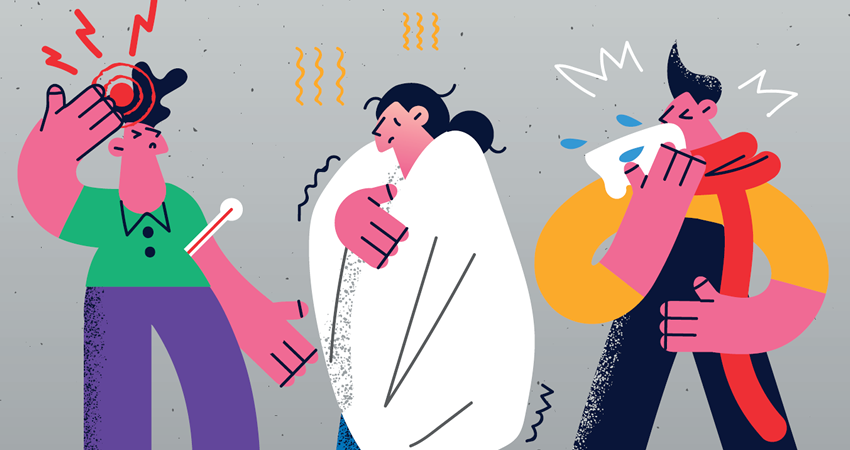We may not be talking so much about COVID in our day-to-day lives, but it does not mean it has gone away. The Government is rolling out its Covid and flu vaccination scheme a month earlier than planned this year, and as autumn approaches, now is a good opportunity to review the position on managing COVID and other infectious viruses in the workplace.
As cases continue to rise advo’s Head of HR, Alison Gill, updates us on important information on how employers should currently approach COVID within the business.
“No employer would ever want to place anybody’s health or wellbeing at risk, would wish to manage any instances of sickness and wish to maintain a healthy and productive workforce. With the recent news highlighting that the instances of COVID are on the rise and new variants continuing to emerge, I have clarified what actions we believe that should be taken if an employee contacts you if they have any illness, including anything contagious, such as a heavy cold, COVID etc.
With regards to respiratory infections, including COVID and where a test has not been taken, the government advice is to try to stay at home and avoid contact with other people, until they no longer have a high temperature (if they had one) or until they no longer feel unwell.
Employers may wish to encourage employees to take a COVID test and hope that they would do so to safeguard their loved ones but employers cannot insist that they do this. However, if an employee has a positive test, the government advice is to avoid contact with people for 5 days after they took the test.
Now that hybrid working has become established in many businesses, a transition to temporary homeworking during a bout of COVID or another virus, where the employee is well enough to work but could pass the illness on to others, should be easier to arrange and have little impact on the employee’s ability to perform their duties.
However, in many work settings, working for home is not an option. There is no legal requirement to self-isolate and employees can still come into work. Indeed, they may be reluctant to go sick and this may especially be the case where statutory sick pay is paid, meaning that they may not be paid for the first three days,
This is a consideration for employers where home or hybrid working is not available as other employees may not wish to work alongside those who have COVID. This would especially be the case if they are pregnant or care for a vulnerable person etc. Employers also would not wish to pass this on the other parties and widespread infection across the business could cause significant business disruption.
However, where there is no company sick pay scheme, if an employer requires an employee to stay at home they will have to be paid as normal.
Finally, as we move into autumn and this winter’s flu season, it is a good time to ensure workplace practices are in place to limit the chances of any viruses spreading within the workforce. There are various steps that can be taken to prevent the transmission of COVID, flu and colds in the workplace.
These include:
- Remaining vigilant about hygiene in the workplace, particularly handwashing
- Maintaining good ventilation
- Social distancing by keeping a distance between employees and others in the workplace
- Encouraging employees to have injections of Covid and flu vaccines, something our Employee Benefit team can help arrange
- Other steps such as face coverings
- Encouraging employees to work at home or partly at home.
In order to manage situations, making sure there are procedures in place dealing with these situations is important and we would encourage employers to consider their approach.”


